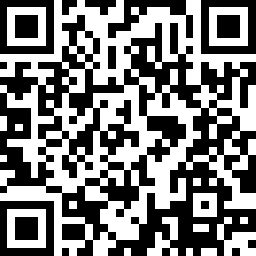Download for Archer AX80
- Product Overview
Setup Video
FAQs
- Why do I receive a "We Noticed a New Login" email?
- Troubleshooting: The internet connection is unstable when connected to the EasyMesh Network
- Why did I receive an email titled "Potential Vulnerabilities Detected in Your Account"?
- How to find the hardware and firmware version of my TP-Link device
- What is the subscription pricing of HomeShield
- How to share network on Tether App
- How to add a router to an EasyMesh network as a satellite device
- What should I do if fail to upgrade the firmware of my TP-Link router?
- Brief introduction of Wireless Channel, Channel Width and DFS
- How to collect system log of Tether App
- Can't access my USB drive plugged into TP-Link router
- General questions about VPN function on TP-Link Routers and Deco
- How to access my USB storage device on the TP-Link Routers from my Android and iOS phone
- How to use Iperf to test the speed on TP-Link routers
- General questions about EasyMesh
- Can TP-Link router be configured using screen reader and pure keyboard operation?
- How to install and activate Avira Prime after you subscribe Homeshield Total Security Package
- Can Deco Mesh, OneMesh, EasyMesh and Omada Mesh products work together?
- How to block or unblock a device from my Wi-Fi network via Tether
- What If I fail to establish EasyMesh network using TP-Link EasyMesh devices?
- How to setup TP-Link Wi-Fi Router on web management page
- How to choose right TP-Link product for your internet service
- Should I use Dynamic IP or PPPoE?
- How to setup TP-Link Wi-Fi Router with Singtel on web management page
- How to setup TP-Link Wi-Fi Router with Singtel on Tether App
- How to set up Access Control List in Access Point Mode on TP-Link wireless router
- How to retrieve your old router's PPPoE dial-up settings to TP-Link wireless router
- How to set up WireGuard VPN on TP-Link wireless router
- How to Build an Ethernet Backhaul Using Two EasyMesh Routers
- The Weak Security and Privacy Warning on the iOS14 or iOS15
- How to enable the Access Control Skill in your Alexa App
- Troubleshooting Guide of DDNS function on TP-Link Wi-Fi Router, LTE Gateway Router or Deco Router
- How to connect TP-Link router with Starlink
- How to Create Static Routing on TP-Link Routers
- Why cannot I find my wireless networks?
- How to access USB storage device on the TP-Link Routers from Windows or Mac OS
- How to set up Wake-on-LAN on wireless router
- Troubleshooting: Unstable connection on the TP-Link router
Firmware
A firmware update can resolve issues that the previous firmware version may have and improve its current performance.
To Upgrade
IMPORTANT: To prevent upgrade failures, please read the following before proceeding with the upgrade process
- Please upgrade firmware from the local TP-Link official website of the purchase location for your TP-Link device, otherwise it will be against the warranty. Please click here to change site if necessary.
- Please verify the hardware version of your device for the firmware version. Wrong firmware upgrade may damage your device and void the warranty.
How to find the hardware version on a TP-Link device - Do NOT turn off the power during the upgrade process, as it may cause permanent damage to the product.
- To avoid wireless disconnect issue during firmware upgrade process, it's recommended to upload firmware with wired connection unless there is no LAN/Ethernet port on your TP-Link device.
- It's recommended that users stop all Internet applications on the computer, or simply disconnect Internet line from the device before the upgrade.
- Use decompression software such as WinZIP or WinRAR to extract the file you download before the upgrade.
|
Archer AX80(EU)_V1_1.1.2 Build 20240428 |
Download | |
|---|---|---|
| Published Date: 2024-06-26 | Language: Multi-language | File Size: 29.15 MB |
|
New Features/Enhancement: |
||
|
Archer AX80(EU)_V1_1.1.1 Build 20240129 |
Download | |
|---|---|---|
| Published Date: 2024-03-07 | Language: Multi-language | File Size: 29.15 MB |
|
Note: |
||
|
Archer AX80(EU)_V1_1.1.0 Build 20230915 |
Download | |
|---|---|---|
| Published Date: 2023-10-13 | Language: Multi-language | File Size: 29.04 MB |
|
Note: |
||
To Use Third Party Firmware In TP-Link Products
Some official firmware of TP-Link products can be replaced by the third party firmware such as DD-WRT. TP-Link is not obligated to provide any maintenance or support for it, and does not guarantee the performance and stability of third party firmware. Damage to the product as a result of using third party firmware will void the product's warranty.
Open Source Code For Programmers (GPL)
Please note: The products of TP-LINK partly contain software code developed by third parties, including software code subject to the GNU General Public Licence (“GPL“), Version 1/Version 2/Version 3 or GNU Lesser General Public License ("LGPL"). You may use the respective software condition to following the GPL licence terms.
You can review, print and download the respective GPL licence terms here. You receive the GPL source codes of the respective software used in TP-LINK products for direct download and further information, including a list of TP-LINK software that contain GPL software code under GPL Code Center.
The respective programs are distributed WITHOUT ANY WARRANTY; without even the implied warranty of MERCHANTABILITY or FITNESS FOR A PARTICULAR PURPOSE. See the respective GNU General Public License for more details.
Apps

- TP-Link Tether
TP-Link Tether provides the easiest way to access and manage your network with your iOS or Android devices. Learn more about TP-Link Tether and Compatible Devices
Note: To use Tether, please update your TP-Link device's firmware to the latest version.
 AX6000 8-Stream Wi-Fi 6 Router with 2.5G Port
AX6000 8-Stream Wi-Fi 6 Router with 2.5G Port

